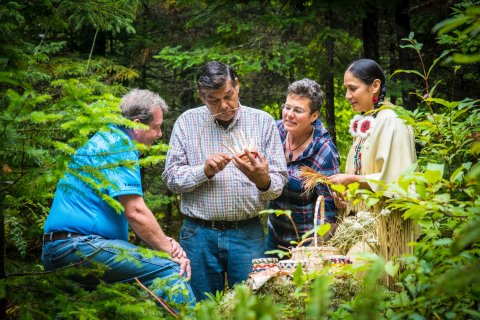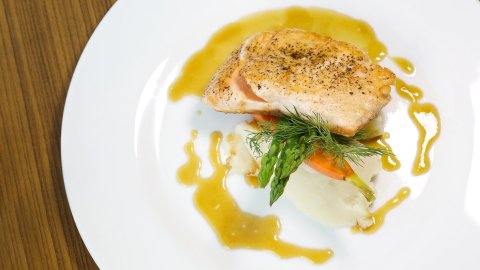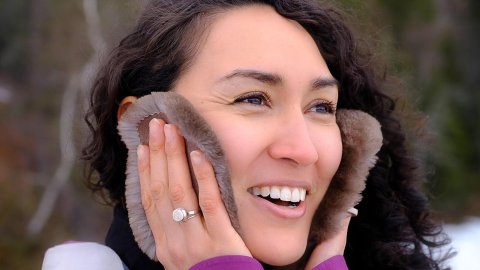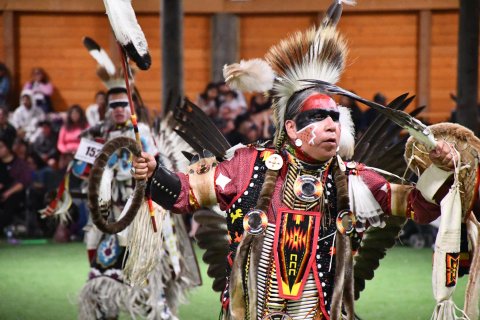Championing the Next Generation of Indigenous Cuisine
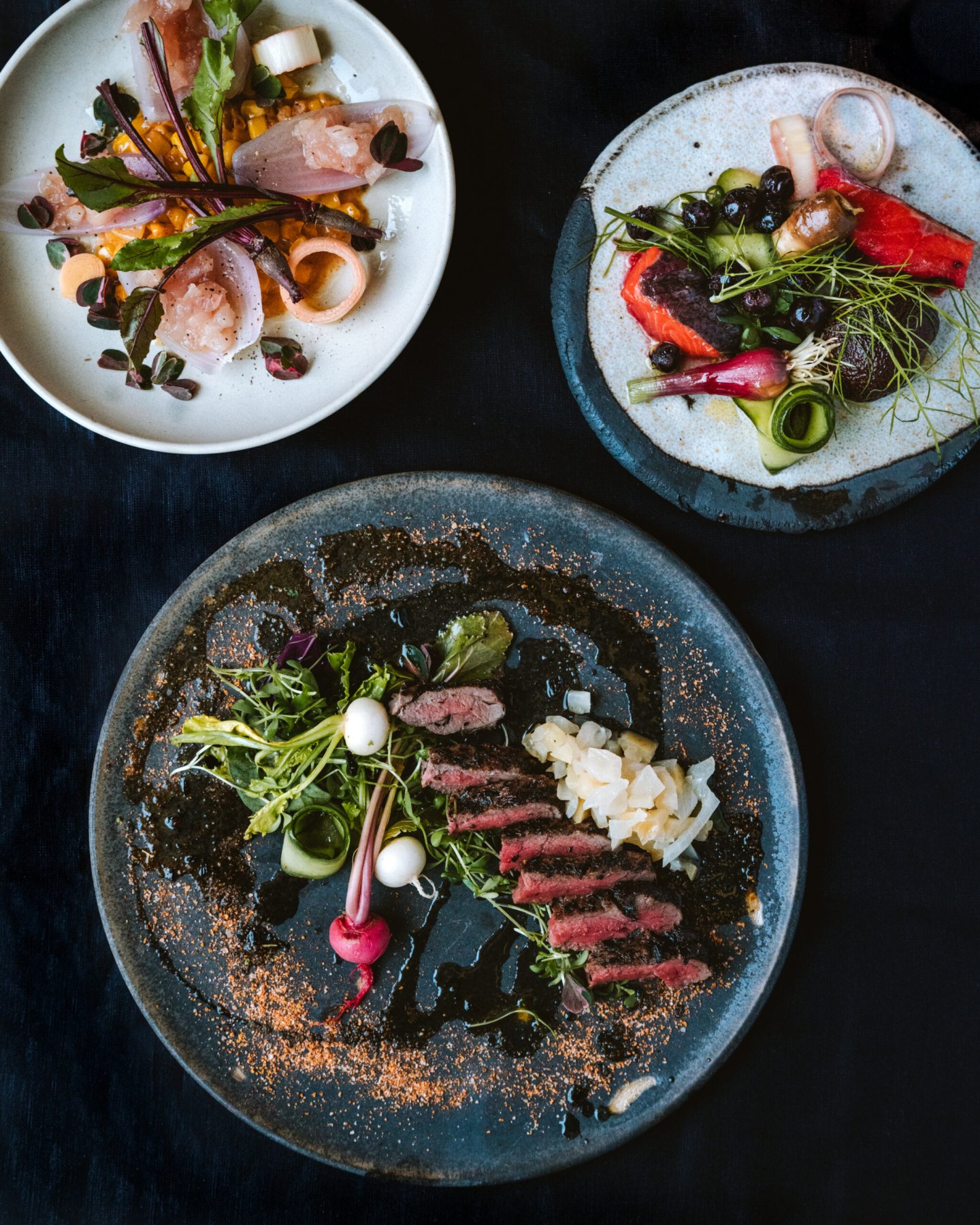
Indigenous food is in the spotlight more than ever before and many First Nations, Métis and Inuit culinary professionals are making sure there’s a seat at the table reserved for youth.
Red Seal Cook and Pastry Chef Tammy Maki is a member of the White Bear First Nation in Saskatchewan and owns Raven Rising Global Indigenous Chocolates in Sudbury, Ontario.
She didn’t have to look far to find a mentee.
“My daughter, Kirsten, was my ears. I have a hearing impairment and I get overwhelmed when there are a lot of people around. She could handle cacophony and she could handle all kinds of people. I never would have been able to do the large events that I do without her, like the Canadian Culinary Championships.”
As satisfying as it was to see Kirsten thrive, mentoring a family member can be challenging.
“Kirsten was very much like me but amplified by 25 times. Often, she talked to me like I was the employee. I finally had to tell her, in here, I’m Chef, I’m your employer. I expect to get what I pay for, and I expect respect.”
“You worry that if you say something you might create a rift, but my business is also my child.”
When Kirsten passed away unexpectedly in March 2023, Chef Maki had to re-evaluate her business structure while navigating heartbreak, but her commitment to passing on knowledge hasn’t wavered.
“I want to train Indigenous pastry chefs because we’re severely underrepresented. I want to teach people how to have a well-rounded career.”
Reflecting on the time she and Kirsten spent together at Raven Rising, Chef Maki says, “I’m so very thankful that I got to spend the last years of her life working with her. She got to see who I am as a professional and she got to experience so much.”
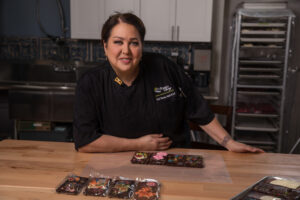
Restaurateur Inez Cook belongs to the Nuxalk Nation in Bella Coola, British Columbia and owns Salmon n’ Bannock, Vancouver’s only Indigenous restaurant, as well as Salmon n’ Bannock On the Fly at Vancouver International Airport.
Her legendary status as an entrepreneur and champion of Indigenous cuisine sometimes has young staff a bit shy to meet her for the first time.
Inez laughingly says, “After five minutes with me the nervousness is gone!”
With most of the team under the age of thirty, Salmon n’ Bannock is fertile ground for the seeds of culture, especially for those who grew up disconnected from their communities.
Serving Indigenous cuisine for the modern palate, the restaurant has a core menu that stays consistent year round, but when Dine Out Vancouver happens, the whole team has a chance to weigh in on new items, with Inez guiding the process.
Inez has also had the honour of being a business mentor.
“I never give advice,” she says, “I listen to their ideas and help them build on their own vision. We’ve all gone through struggles so hopefully what they learn can help alleviate some of those.”
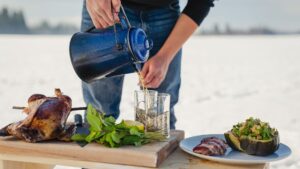
Chris Commandant, from the Wahta Haudenosaunee community in Bala, Ontario, is Sous Chef at the National Arts Centre in Ottawa and a graduate from Le Cordon Bleu in Paris.
In addition to the high profile work he does, he places high priority on mentorship and teaching in a wide variety of settings.
“I try to model sessions after the Longhouse, where you can speak freely and ask questions. Everyone comes together embracing the one bowl one spoon philosophy. We share everything. I’ll put ingredients that they need in different parts of the workspace, so they have to ask each other for things.”
Chef Commandant will be Chef in Residence at the NAC in the fall of 2024. He takes that honour to heart and hopes he can inspire future Indigenous chefs.
“Our primary responsibility is passing on that knowledge we’ve picked up or it will die with us. It’s about that younger generation grabbing hold of it and running with it.”
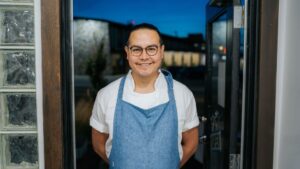
Chef Scott Iserhoff, from Attawapiskat First Nation in northern Ontario, owns and operates Pei Pei Chei Ow, a food and education company in Edmonton, AB.
Still under forty, Scott finds himself questioning what he has to offer as a role model.
“I sometimes think I don’t have that much to teach, or that I’m not the right person to teach it. I guess it’s imposter syndrome.”
But then he thinks back on the times he knows he’s made a difference.
“I really try to engage with them as Indigenous youth, “ Scott says, “Sometimes it takes a few hours to a few days for them to come out of their shell and be themselves, but once they do, it’s so beautiful. Then they’ll be asking if this is the last time we’re cooking or can we cook some more.”
Scott hopes that even short periods spent with youth can empower them to cook more at home, even if it’s just simple dishes.
“I give them techniques and tricks they can use,”he says.
Scott is always mindful of the impression he leaves.
“When I’m teaching, I try to put myself in the shoes of the youth and choose my words carefully. That means a lot. When I was young, words meant a lot.”
It’s not just Indigenous youth who benefit from Scott’s skills.
“Imagine if a settler chef tells people their mentor was an Indigenous chef. That will help repaint the narrative and break stereotypes.”
Involving youth in Indigenous cuisine is a priority for Scott.
“It builds exposure, and it builds hope. From my perspective, when I was young, I always wondered where all the Indigenous chefs were. Even if we’re only together for one day, they’ll remember that for the rest of their lives. They’re very important. They’re the future. They’re what we set out to do.”
